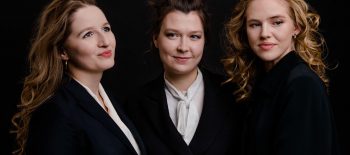Roman PERUCKI, chief organist at the Gdańsk-Oliwa cathedral, presents an almost exclusively Polish programme at the Bruges Organ Festival. This will provide audiences with the opportunity to (re) discover little-known names which they will nevertheless never forget.
Programme
Mieczysław Surzyński (Poland, 1886-1924), “Kto się w opiekę” (variations)
F.W. Markull (Poland [Gdańsk], 1816-1887), Air Russes (Ziklus 12 piece caracteristiques)
F.W. Markull, “Nun danket alle Gott” (sonate)
F.W. Markull, Allegro moderato, andantino, Vivace Finale
Juliusz Łuciuk (Poland, o1927), Marian Preludes
Leon Boëllmann (France, 1862-1897), Gothic suite, op. 25
Leon Boëllmann, Introduktion-Choral, Gothic menuet, prayer to Our-Lady, Toccata
Zbigniew Kruczek (Poland/Belgium, o1952), Bach’s Prelude and Fugue
Jan Janca (Poland/Germany, o1933 ), Orgelverse on “Hilf, Herr meines Lebens”: Sortie
PRACTICAL INFORMATION
>>> St. Salvator’s Cathedral (Sint-Salvatorskoorstraat 8, 8000 Brugge) – see map
>>> Friday 12 August 2016 – 20:30
>>> €9
+++ the list of concerts is HERE
Organ music in Poland
The first mentions of the organ in Poland date back to the XIIth century. Initially limited to the royal court, the instrument gradually spread across the whole country. From the XVth century onwards, one can trace the building of organs to large Polish cities such as Gdansk (Oliwa), Warsaw, Krakow, Poznan, etc. In parallel to the development of works of music, technical progress in the construction of instruments also increased. Alongside Polish production, we should highlight the fact that large numbers of Italian, German, Flemish or French pieces were also performed. In this dynamic, we can witness in its entirety the sense of cultural openness which characterised golden age Poland. One fact stands out in the story of Polish culture: the resurgence of the organ in the musical compositions of the XIXth century. August FREYER (1803-1883) – friend of Fryderyck CHOPIN – or Stanisław MONIUSZKO (1819-1872) and Mieczysław SURZYŃSKI (1886-1924) left wonderful scores for this instrument. At the end of the century, a new generation of composers took up Moniuszko’s torch, amongst them Władysław ŻELEŃSKI (1837-1921), who played a prominent role, and Feliks NOWOWIEJSKI (1877-1946). The organ did not become obsolete, far from it! The contemporary works of Tadeusz PACIORKIEWICZ (1916-1998) and Tadeusz MACHEL (1922-2003) – who, with hardly any reference being made, received special prizes for his string quartets at the Liège International Composition Competition in 1956 and 1959 – or Augustyn BLOCH (1929-2006) – who is probably the the most interesting Polish composer and organist of the XXth century, more than proved this.
ROMAN PERUCKI
Roman PERUCKI graduated from the Gdańsk Stanisław Moniuszko Conservatoire in 1985 (he was in Leon Bator’s class) and taught there himself from 1997. He has taught regular master classes in Poland and abroad (Germany, Russia, France, Mexico, etc.). He is the owner of magnificent XVIIIth century organs, assuredly the most famous in Poland, which can be found in the Gdańsk-Oliwa cathedral. Alongside his career as a concert performer, which he honed both in Poland and abroad, with more than 2,000 recitals to his name so far, he is also a consultant in the field of designing instruments, repairing and restoring historical organs in Poland and more particularly in the archdiocese of Gdańsk. Moreover, he is regularly invited to participate in organ competitions as a juror, notably at the International Competition in Kaltern/Caldaro sulla Strada del Vino (Italy), Opava (Czech Republic), Paris, Saint Petersburg, etc. He is the director of the J. P. Sweelinck International Organ Music Festival which is held every year in July and August in the Notre-Dame basilica in Gdańsk, in the town centre.
His many recordings are extremely successful in Poland (he even owns a platinum disc!) and are reflected in the awards and distinctions which he has received over the last ten years: Polish Medal of Cultural Merit, Gdańsk City Prize in the field of culture, Gloria Artis medal, order of Saint-Silvestre (awarded by Pope Benedict XVI), etc.
Links
Festival d’Orgue de Bruges: http://www.kathedraalconcerten.be/





